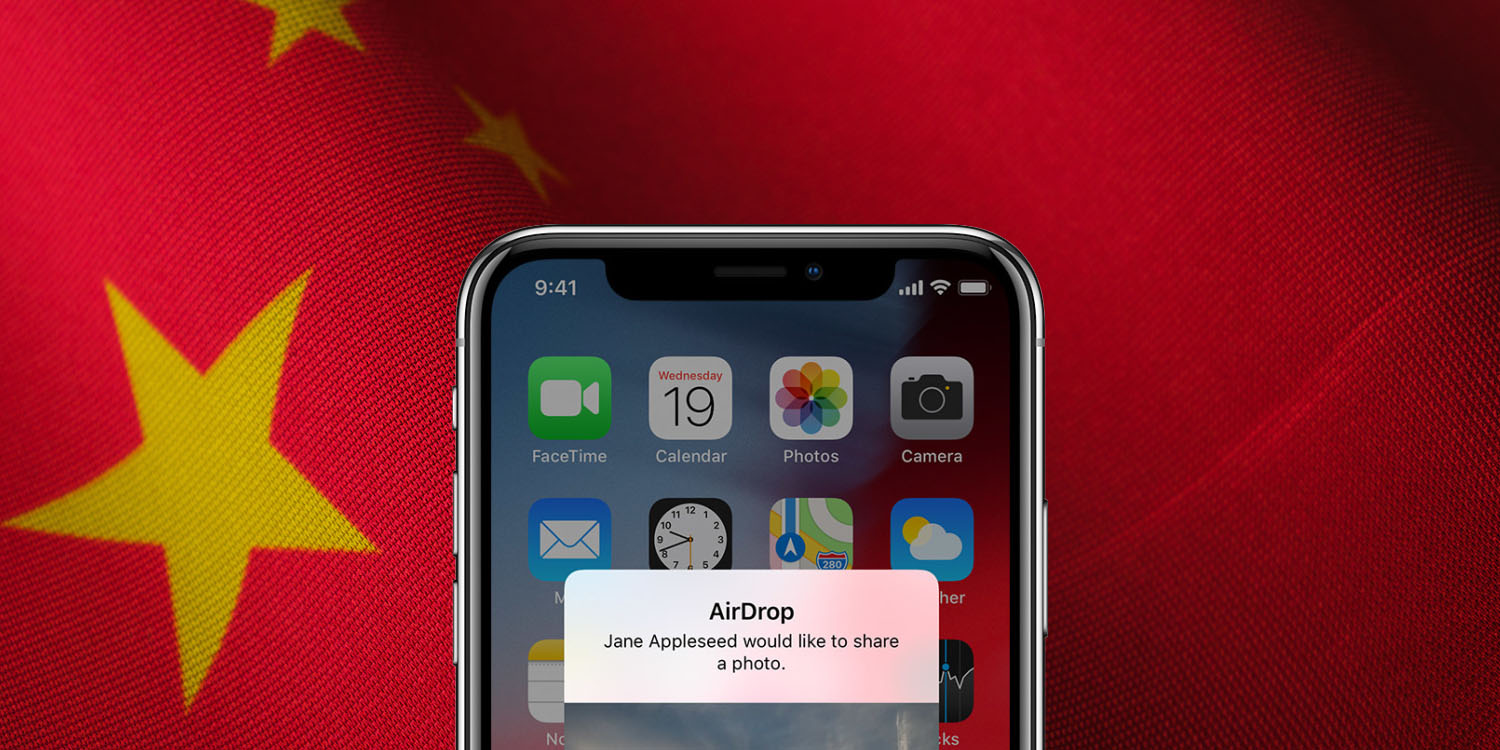
The Chinese government is still afraid of AirDrop, despite Apple giving in to pressure to make the feature harder to use by protestors.
The Cyberspace Administration of China has issued a draft proposal to clamp down on the use of AirDrop, as well as similar Bluetooth-enabled file-sharing features on Android. Among other things, this would oblige Apple to ensure that people use their real names for the name of their iPhone …
Why is the Chinese government afraid of AirDrop?
The Chinese government monitors internet usage in the country, scans data stored on cloud services, and bans most end-to-end encrypted chat apps like WhatsApp and Telegram – though Apple has so far managed to avoid the same fate with iMessage and FaceTime.
Foreign social media apps are also banned in China. These include Twitter, Facebook, Instagram, Reddit, and many more. Additionally, VPN apps are banned.
The short-range nature of AirDrop, however, means that there’s no way to monitor what is transmitted. Protestors in Hong Kong made extensive use of it to share details of planned protests and other anti-government materials, and people in mainland China later did the same thing to share posters opposing Xi Jinping and the Chinese government.
Apple introduced a 10-minute time-out in response
To receive documents from anyone via AirDrop, you need to set your iPhone to receive messages from Everyone, instead of Contacts Only. Protestors would keep this setting enabled at all times to facilitate public sharing.
The Chinese government clearly expressed concerns to Apple, as the company introduced a 10-minute time-out for the Everyone setting; at the end of that time, it would revert to Contacts Only. That made it effectively impossible to use AirDrop in this way, as everyone would have to manually re-enable it every 10 minutes.
Initially, the change was limited to iPhone models purchased in mainland China. Ironically, however, iPhone owners in other countries said that they’d prefer this, and so Apple subsequently rolled out the change globally.
Legislation would force a further change by Apple
It seems the Chinese government remains afraid of AirDrop and other short-range file-sharing features, as CNN reports that it now plans to further restrict usage.
The draft proposal was issued earlier this week by the Cyberspace Administration of China, the powerful internet watchdog that reports to a body headed by leader Xi Jinping.
People must not publish or share “illegal or harmful” information on such networks and should report violations to the regulator.
The planned law would also require Apple to ensure users set their iPhone name to their real name.
Those who create or support such networks should require users to provide their real names and other personal information.
Apple could technically do so by building a system to require Chinese iPhone owners to scan government ID to set their iPhone’s name, and then locking it, but it would mean the tech giant again compromising its own values to satisfy China.
Technically, the proposal is being called a “consultation,” though nobody should doubt that the outcome has already been decided.
FTC: We use income earning auto affiliate links. More.




Comments